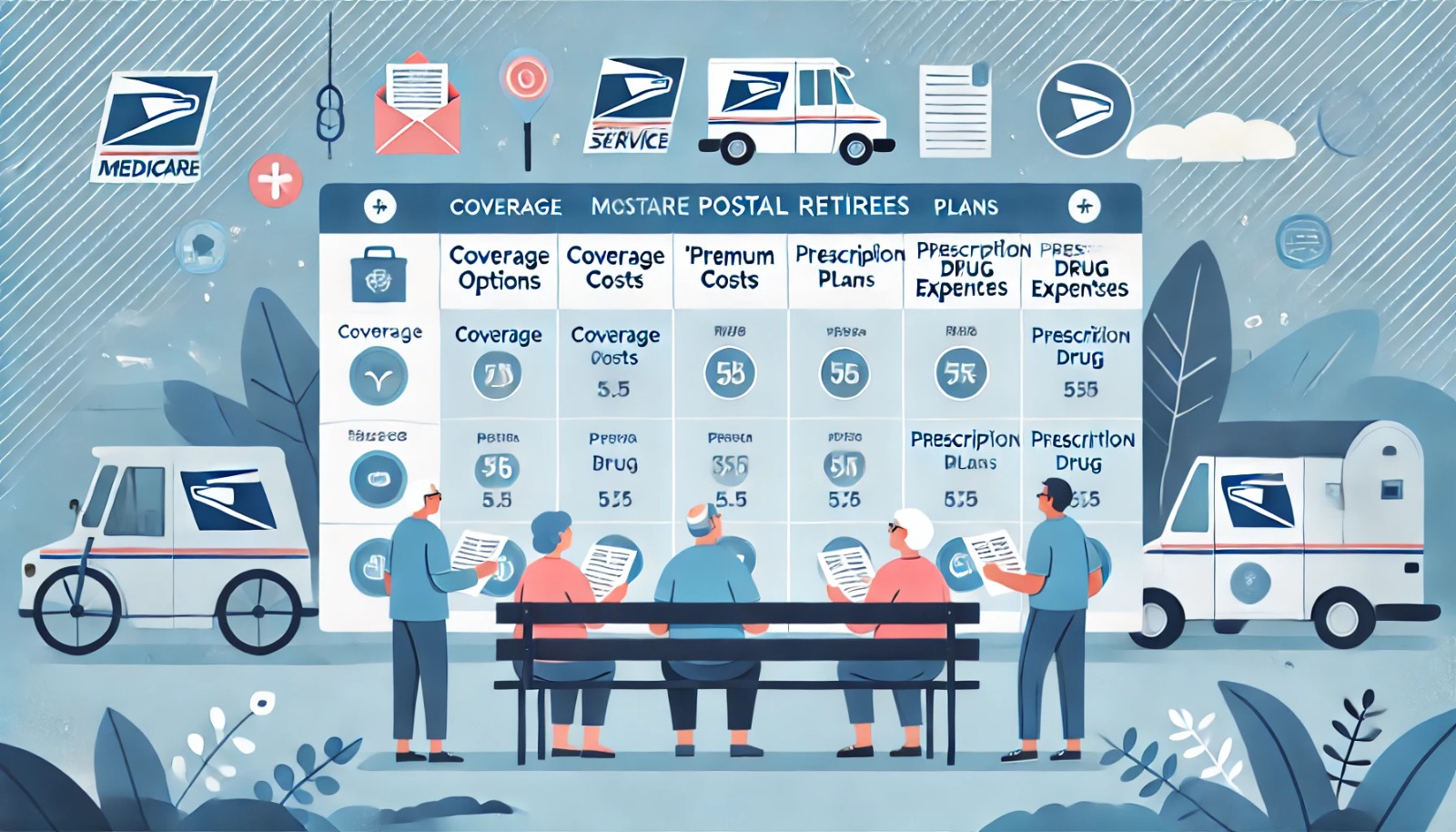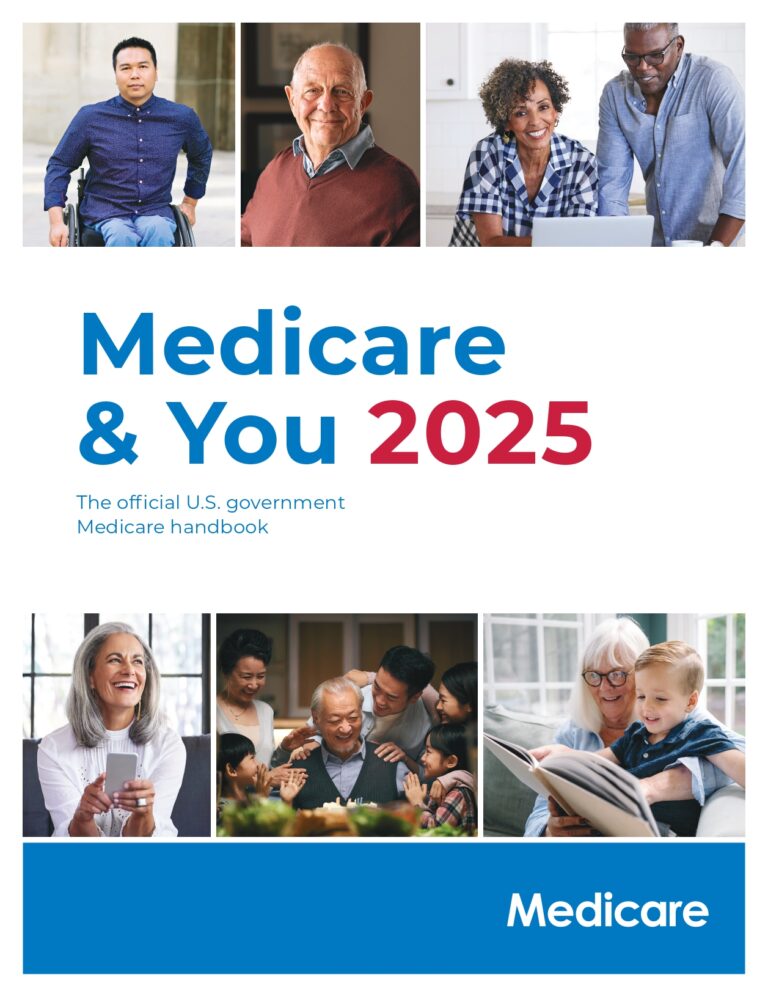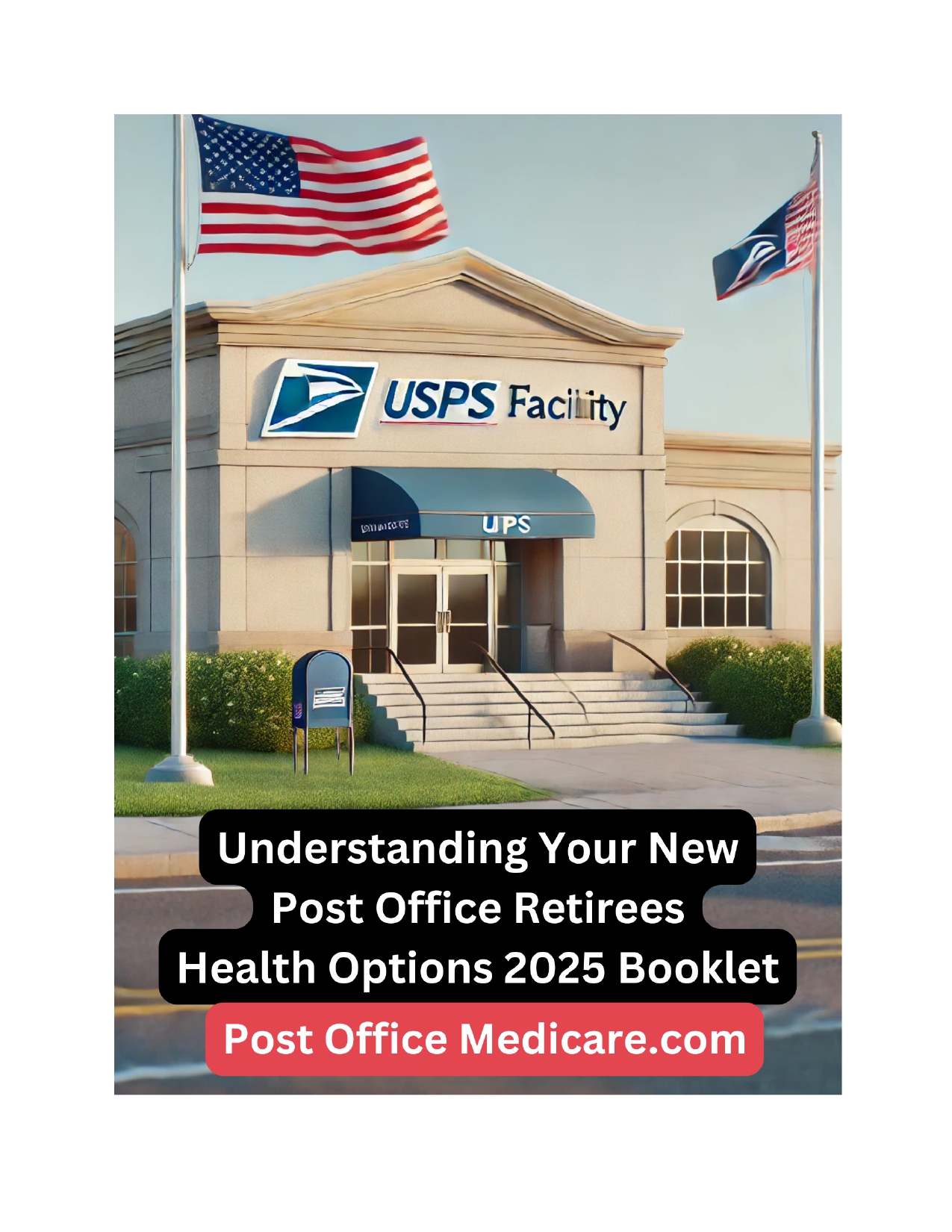Comparing Medicare Plans for Postal Retirees: Finding the Right Fit
Introduction Begin with a brief overview of why Medicare selection is important for postal retirees. Highlight that, while retirement is an exciting new chapter, choosing the right healthcare plan is crucial for both financial and health reasons.
Understanding Medicare Options for Postal Retirees
Discuss the different Medicare options available, specifically tailored for retired postal employees. Describe each part of Medicare (Part A, Part B, Part C, Part D) and Medigap.
- Medicare Part A (Hospital Insurance): Covers inpatient hospital care, skilled nursing, hospice, and some home healthcare.
- Medicare Part B (Medical Insurance): Covers doctor visits, outpatient care, preventive services, and certain medical supplies.
- Medicare Part C (Medicare Advantage): Alternative to Original Medicare; includes all Part A and Part B benefits and often includes Part D coverage.
- Medicare Part D (Prescription Drug Coverage): Helps cover the cost of prescription drugs.
- Medigap (Supplemental Insurance): Fills in the “gaps” left by Original Medicare, such as deductibles and coinsurance.
Unique Considerations for Postal Retirees Postal retirees often have different considerations when choosing a Medicare plan due to access to Federal Employees Health Benefits (FEHB) plans, which may affect the need for certain Medicare plans.
Subheading: Understanding the FEHB and Medicare Coordination Explain how FEHB and Medicare work together. FEHB provides an additional option and may influence which Medicare parts are necessary. Discuss the cost-saving potential of combining Medicare with FEHB or using FEHB as a standalone plan.
Medicare Advantage Plans: Pros and Cons Analyze Medicare Advantage plans for postal retirees, addressing advantages (like bundled coverage and lower out-of-pocket costs) and potential disadvantages, such as network restrictions and copayments.
- Pros: Convenience, cost-effectiveness, additional benefits (vision, dental).
- Cons: Network limitations, possible higher out-of-pocket costs for out-of-network services.
Medigap for Postal Retirees: Is It Right for You? Explore the benefits of Medigap for retirees, especially those who want comprehensive coverage. Discuss its advantages, including flexibility in providers, and drawbacks, such as additional premiums.
Comparing Prescription Drug Plans (Part D) Explain how to evaluate Part D plans, focusing on factors like formulary, premiums, and out-of-pocket costs. Emphasize the importance of coverage for frequently used medications.
Case Scenarios: Choosing the Right Plan for Different Needs Create hypothetical case studies, showing different postal retirees with varying health needs and how they might choose between Medicare options.
- Case 1: Healthy retiree with minimal medical needs.
- Case 2: Retiree with chronic conditions requiring frequent care.
- Case 3: Retiree who travels frequently and requires nationwide coverage.
How to Enroll and Avoid Common Mistakes Offer guidance on the enrollment process for Medicare and potential penalties for late enrollment. Include tips on reviewing existing FEHB coverage before making Medicare decisions.
Final Tips for Postal Retirees Choosing a Medicare Plan Provide closing advice on how retirees can best evaluate Medicare plans. Include factors such as budget, health needs, and preferred healthcare providers. Encourage readers to seek professional advice if needed.
Read More Blog
Follow Us On:- Facebook








